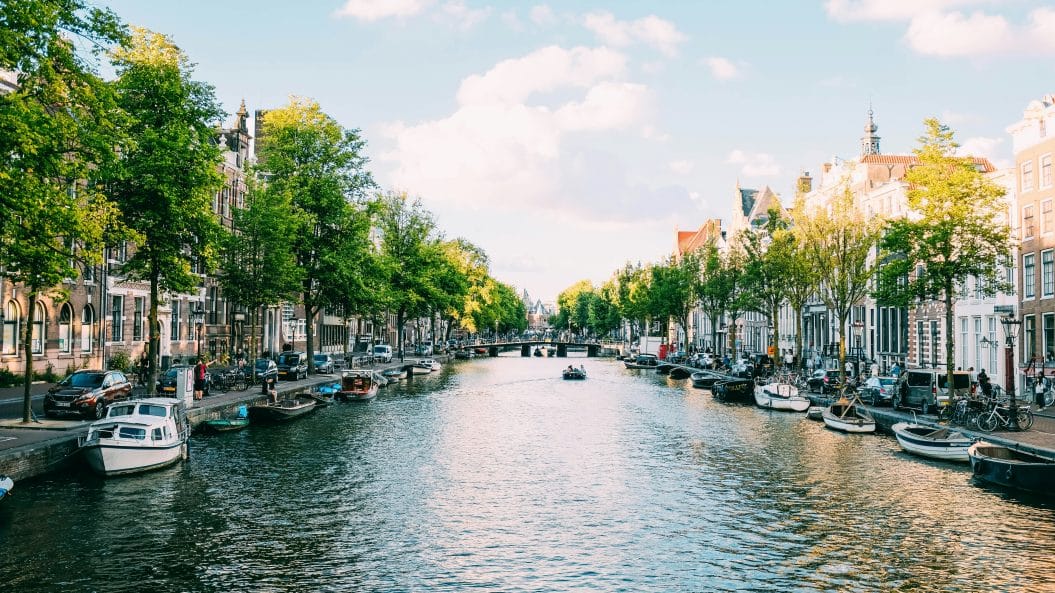Haarlem, 23 March, 2023 – The lectors’ platform, Sustainable Urban Tourism, has been granted a subsidy of €100,000 by the SIA. Tasked with researching how to develop forms of tourism that will contribute to a more sustainable urban living environment, this platform has united researchers from twelve Dutch knowledge institutions. Based on a joint research and innovation agenda, they are working together in conjunction with local, as well as national and international, partners.
Unique transdisciplinary collaboration
At the moment, the Sustainable Urban Tourism lectors’ platform comprises 16 professors and researchers from 12 knowledge institutions*. These participants come from a variety of academic backgrounds, including tourism, geography, business innovation, design, psychology, architecture, marketing and the creative industry. The diversity they all bring is key to acquiring a better understanding of urban tourism, particularly now that it has become an increasingly integral part of contemporary cities. Ko Koens, professor of New Urban Tourism at Inholland University of Applied Sciences and the initiator of the platform, explains that the platform stimulates a higher level of cooperation between researchers from Dutch universities of applied sciences and other universities. ‘This kind of collaboration is quite unique in the world and it can help us find innovative solutions for urban tourism problems, both here in the Netherlands as well as in other countries inside and outside Europe.’
Tourism as more than just an ecosystem
Transdisciplinary collaboration between different educational platforms makes it possible to analyse tourism as a social phenomenon, as opposed to just an economic sector. Adopting such a perspective is both innovative and essential in addressing the question of how ambitious visions for the future of tourism can be translated into real-world change. The theme of sustainable urban tourism, as well as regenerative tourism, is in line with the wider social development that now accompanies urban tourism. Cities, national tourism organisations and the European Commission are currently united in the way they perceive a future in which the tourism ecosystem will transition to a position that will make a much broader contribution to inclusive growth and prosperity. The lectors’ platform intends to fuel this transition by using joint research and design to place more emphasis on how it will all be realised. ‘The tourism ecosystem is becoming increasingly complex,’ insists Karoline Wiegerink, Professor City Hospitality Hotelschool The Hague. ‘It demands visible value creation for a wide range of stakeholders. And not just tourists, but residents and entrepreneurs in particular.’
Joint research and innovation agenda
The aim of the platform is to collaborate with local, national and international partners on the basis of a joint research and innovation agenda and then learn how tourism can be used to improve places and the local way of life. These partners include municipalities, provincial authorities, destination management organisations (DMOs), museums, hotels, the Netherlands Bureau for Tourism & Conventions (NBTC) and other, international, partners. To maximise its social impact, the platform has joined forces with the Centre of Expertise Leisure, Tourism & Hospitality (CELTH), whose focus is on increasing knowledge and making the broader leisure economy more sustainable. ‘The knowledge and insights that are being developed by the lectors’ platform are necessary to help increase the positive impact the hospitality industry has in cities,’ says Menno Stokman, director of CELTH. ‘This will help realise the objectives of the broader Agenda-Conscious Destinations and Perspective 2030 Destination Netherlands.’
Expertise Network Sustainable Urban Tourism
To boost its effectiveness and ensure that it is sustainably embedded, the lectors’ platform is also affiliated with the Expertise Network Sustainable Urban Tourism (ENSUT). This network, that is currently being set up, is an initiative of Inholland. Working together with professional partners in the field and a variety of domains and research areas, such as safety, metropolitan and digital developments, systemic co-design and geography, the overriding ambition is to make urban tourism more sustainable. The network element is crucially important for the platform. Partners from the professional field and society as a whole – including the governmental and non-governmental sectors – are indispensable to the realisation of its objectives. The platform is exchanging resources, both human and otherwise, with ENSUT while ENSUT is taking the lead when it comes to communicating with and involving external partners.
